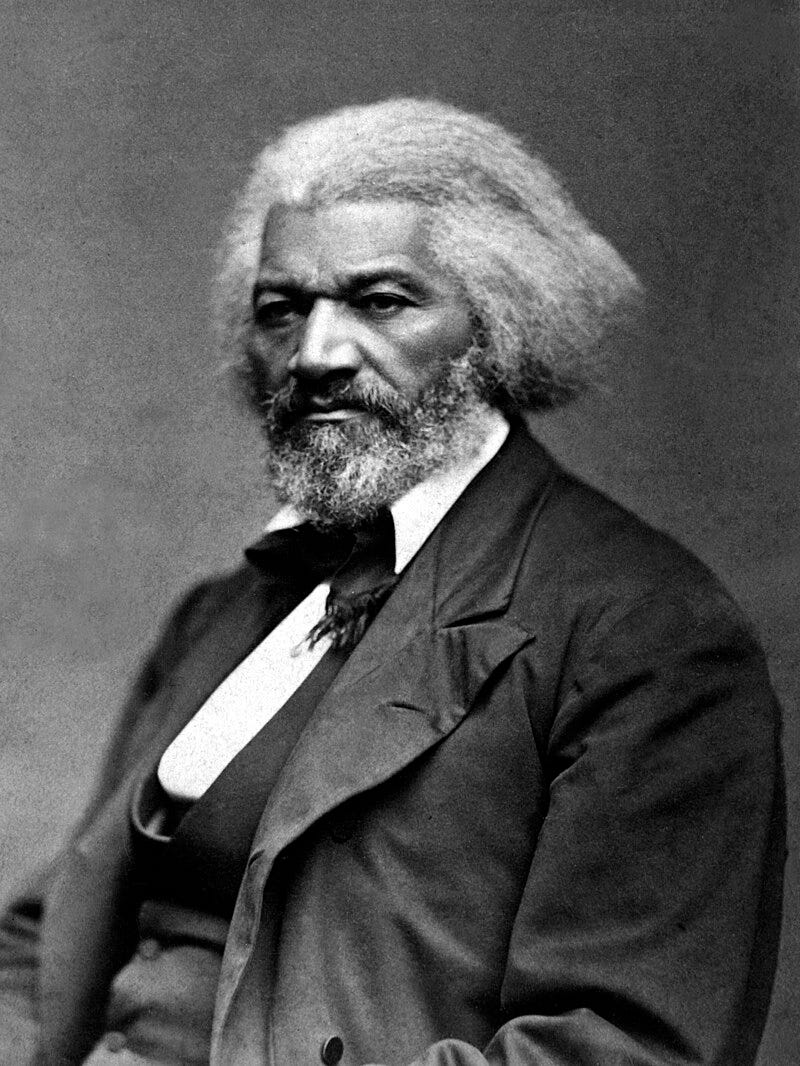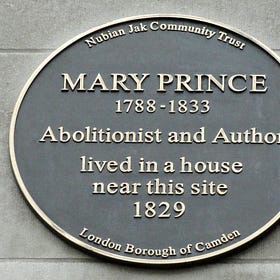LitFlashback: A Scorching Speech
This week we return to an earlier newsletter featuring a rousing speech from a writer who, among other accomplishments, was the most photographed man of the nineteenth century. Any guess who it is?
'What, to the Slave, is the Fourth of July?'
What, to the American slave, is your 4th of July? I answer; a day that reveals to him, more than all other days in the year, the gross injustice and cruelty to which he is the constant victim. To him, your celebration is a sham; your boasted liberty, an unholy license; your national greatness, swelling vanity; your sounds of rejoicing are empty and heartless; your denunciation of tyrants, brass fronted impudence; your shouts of liberty and equality, hollow mockery; your prayers and hymns, your sermons and thanksgivings, with all your religious parade and solemnity, are, to Him, mere bombast, fraud, deception, impiety, and hypocrisy -- a thin veil to cover up crimes which would disgrace a nation of savages.
There is not a nation on the earth guilty of practices more shocking and bloody than are the people of the United States, at this very hour.
Go where you may, search where you will, roam through all the monarchies and despotisms of the Old World, travel through South America, search out every abuse, and when you have found the last, lay your facts by the side of the everyday practices of this nation, and you will say with me, that, for revolting barbarity and shameless hypocrisy, America reigns without a rival.

What we still love about this excerpt…
We initially published this excerpt from Douglass’s 1852 speech as part of an American Independence Day newsletter. But the passage retains its power to shock any day of the year. Douglass’s rhetorical question so starkly reveals the inequalities of nineteenth-century America. As his charges against the holiday mount, he reveals it to be mere window dressing. At its core, the speech attacks the hallowed idea of America being exceptional and implicitly asks if his country’s exceptionalism is indeed a thing to be celebrated.
About the author
Frederick Douglass (c. 1817-95) rose to become the leader of the abolitionist movement and of African American civil rights in the nineteenth century. He published his autobiography in 1848, entitled Narrative of the Life of Frederick Douglass, which detailed his harrowing escape from enslavement. In this masterpiece and elsewhere, he credited learning to read and write — which he did in secret — as foundational for his emancipation and his later calling as orator, writer, abolitionist, and activist. In addition to his support of civil rights for African Americans, he was also committed to women’s suffrage.
To Read Alongside...
Continue our celebration of Black History Month (UK) with a few of our other newsletters about social justice, in all its forms:
State of the Nation
Elizabeth Keckley, Behind the Scenes; or, Thirty Years a Slave and Four Years in the White House
Suggest a LitHit!
Tell us your own favourites from literature you've read, and we can feature you as a Guest Curator. Just email us with the following information:
Your full name
The title of the book you're suggesting
The location of the excerpt within the book (e.g., "in the middle of chapter 5"), or the excerpt itself copied into the email or attached to it (in Word)
Why you love it, in just a few sentences
**Please note that we welcome all suggestions but at the moment we can only release excerpts that are out of copyright and in the public domain. This means 75 years or more since the author's death. You can find many such out-of-copyright texts on the internet, for example at Project Gutenberg and Standard Ebooks.
About LitHits
You might also enjoy...
Writers Make Worlds: https://writersmakeworlds.com/
The Ten Minute Book Club: https://www.english.ox.ac.uk/ten-minute-book-club
Project Gutenberg: https://www.gutenberg.org/
Standard Ebooks: https://standardebooks.org/
“Five Tips to Get Reading Again if You’ve Struggled During the Pandemic,” The Conversation (8 January 2021): https://theconversation.com/five-tips-to-get-reading-again-if-youve-struggled-during-the-pandemic-152904
Feedback
We'd love to hear your thoughts on our newsletter:
kirsten@lit-hits.co.uk
Graphic design by Sara Azmy
All curation content © 2022 LitHits. All rights reserved.






